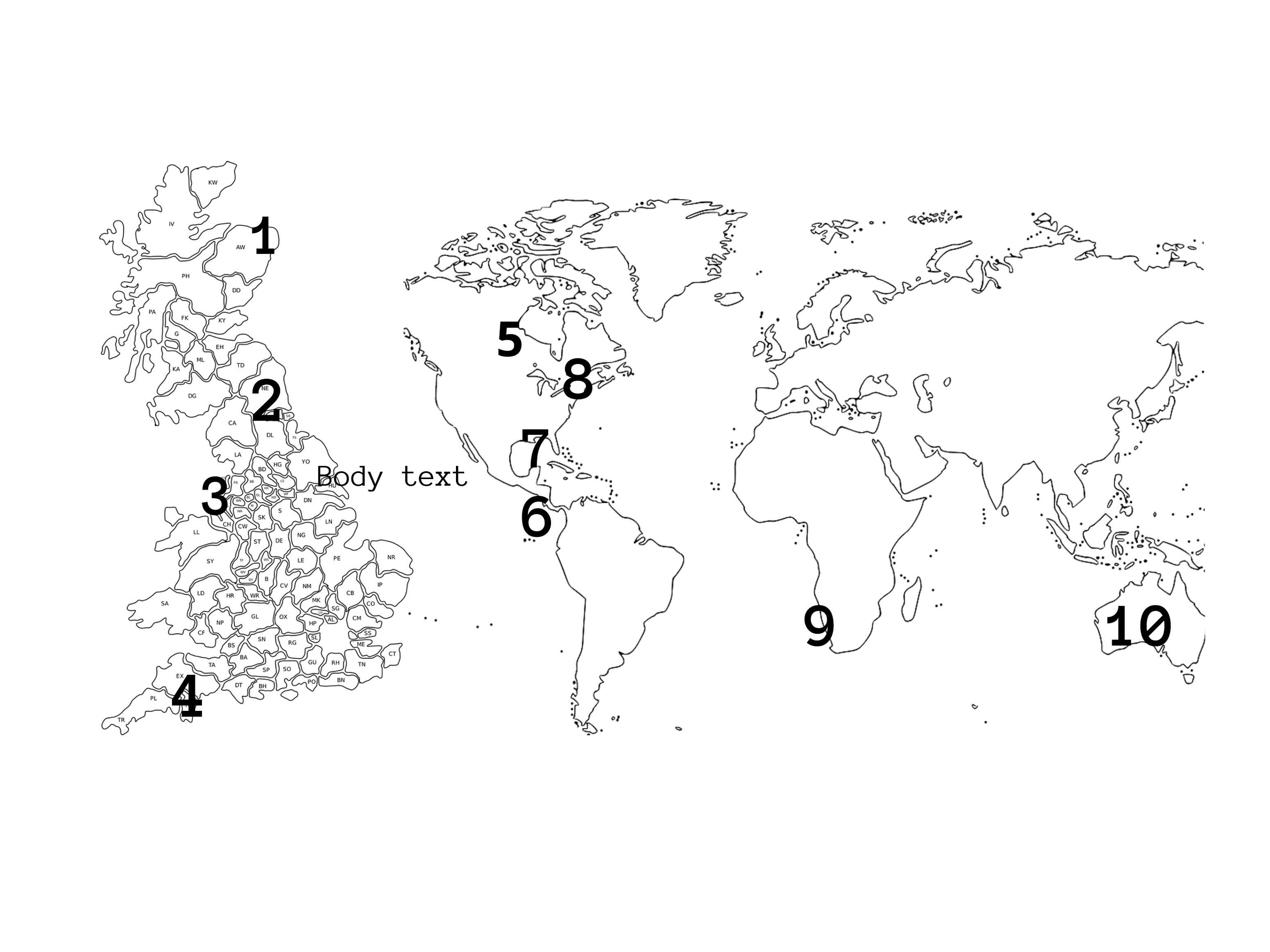
Putting English on the Map Trivia Quiz
Quips have been made about English being a common language that separates those who speak it from each other, and to some extent this is true. Here are ten varieties of English from around the world. Your task is to put them on the map.
A label quiz
by spanishliz.
Estimated time: 3 mins.
